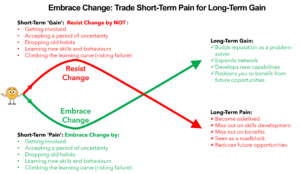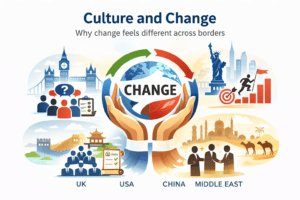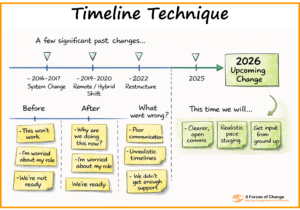 Let’s bet on the flip of a coin. If I win you pay me £20. How much would I need to offer you (if you win) before you are willing to take the bet? £20? £20.50? or maybe quite a lot more. In is book ‘Thinking Fast, and Slow’ Daniel Kahneman explains how research shows that on average you would want £37 before you would be happy to take the bet, despite the odds being even that you would win. What this points to is people’s fear of loss being greater than their desire for success.
Let’s bet on the flip of a coin. If I win you pay me £20. How much would I need to offer you (if you win) before you are willing to take the bet? £20? £20.50? or maybe quite a lot more. In is book ‘Thinking Fast, and Slow’ Daniel Kahneman explains how research shows that on average you would want £37 before you would be happy to take the bet, despite the odds being even that you would win. What this points to is people’s fear of loss being greater than their desire for success.
We see this all the time in organisations striving to adapt to new conditions in the marketplace. When faced with change people are more concerned by the potential that they will suffer a small loss than they are inspired by the potential of a larger gain. That’s why time spent addressing people’s concerns about loss (rather than sweeping it under the carpet) is better than time spent trumpeting the potential benefits. On the other hand, if you can reframe benefits as the avoidance of loss then they can become more powerful. People will (on average) be more motivated by “stopping our the competition from taking our business” than “grabbing market share from our competitors”.






